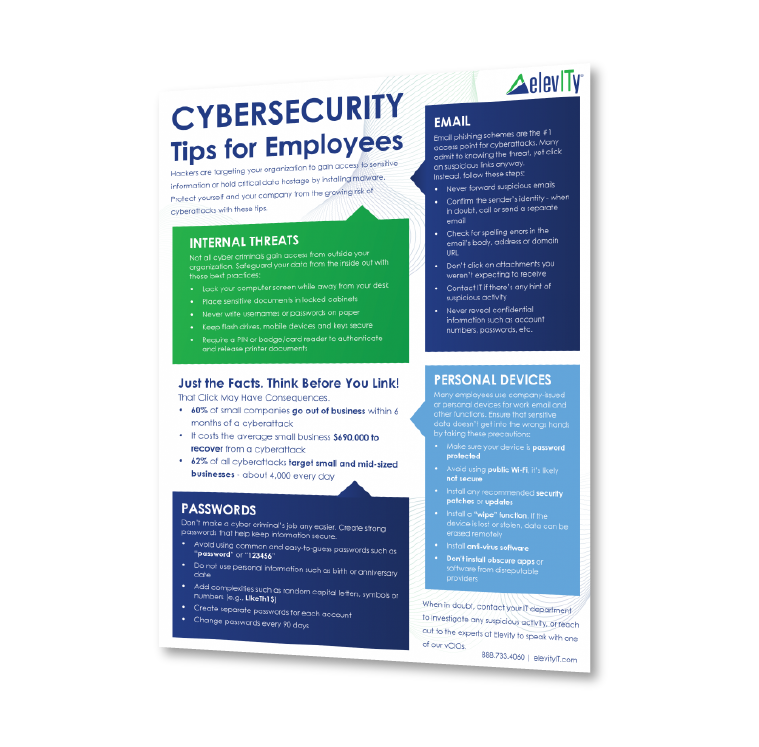When IBM Watson first appeared on Jeopardy! more than a decade ago, it amazed viewers with how quickly it understood and answered questions. It even outperformed its human competitors, giving us all a peek into the potential of cognitive technology.
Cognitive computing and cognitive analytics are getting smarter all the time, and they’re showing up in more areas of our daily lives — including how we travel, enjoy entertainment, get customer support, and even manage our health and fitness.
Cognitive computing is also changing the way businesses operate, from small neighborhood stores to large corporations. In fact, a 2024 survey by McKinsey found that 65% of organizations are regularly using generative AI, a type of cognitive computing. This is a significant increase from previous years, indicating the growing importance of AI-driven solutions in business.
What is Cognitive Computing?
Cognitive computing systems are designed to think like humans, learning from interactions and experiences. They use a massive quantity of information to provide answers and recommendations that are supported by existing data. Adaptation is one of the primary characteristics of cognitive computing, as these technologies can learn from what they’ve already seen or done, adapt on the fly, and make adjustments where needed.
You’ve probably seen cognitive computing in action already – such as when Netflix suggests movies you might like, Amazon shows you products related to your past purchases, and Facebook fills your feed with topics you’ve shown interest in before.
RELATED: The Role of AI in IT Support
5 Cognitive Computing Product Examples
Who's using AI? Entrepreneurs and business leaders are leveraging cognitive computing in a wide variety of industries and applications to improve their products and services. Healthcare is currently the largest market segment using cognitive computing, leveraging these technologies for diagnostics, personalized treatment recommendations, and operational efficiencies.
The BFSI (Banking, Financial Services, and Insurance) sector is another major adopter, using cognitive computing for risk assessment, fraud detection, and customer service automation. The sector benefits from cognitive systems' ability to analyze massive amounts of data to optimize investment strategies.
Here are five examples of companies and systems that are successfully using cognitive technology to extend and enhance their capabilities.
1. Aladdin
Primary Industry: Finance
Objective: Provide risk management and investment decision-making support
Managing complex portfolios and assessing risk across various asset classes can be challenging for financial institutions. BlackRock's Aladdin, an integrated investment management platform, helps professionals navigate these complexities.
Aladdin combines risk analytics, portfolio management, and trading tools into an integrated system that delivers real-time data and insights, enabling users to manage risk while optimizing investment strategies. The platform is widely used by asset managers, banks, and insurance companies, with tools that help develop portfolios, execute trades, and comply with regulations.
2. Deep Mind
Primary Industry: Healthcare
Objective: Enhance diagnostics, treatment planning, and healthcare research
The complexity of diagnosing diseases and planning effective treatments requires vast amounts of data and precise analysis. Google's DeepMind leverages AI to address these challenges, providing cutting-edge solutions in the healthcare sector.
DeepMind’s AI systems analyze medical images, predict patient outcomes, and assist in diagnosis with remarkable accuracy. One of its most notable achievements is in the field of ophthalmology, where its AI model can detect more than 50 eye diseases from retinal scans, helping clinicians make quicker and more accurate diagnoses.
3. LifeLearn
Primary Industry: Veterinary Care
Objective: Help veterinarians diagnose and treat illness in their animal patients
Cognitive technology isn’t just helping humans; it’s also helping veterinarians take better care of the animals. LifeLearn offers a clinical decision-support tool called Sofie, which leverages cognitive technologies to search a vast knowledge base, including 40,000 pages of peer-reviewed, evidence-based reference materials containing the most current and trusted veterinary resources.
Clinicians can use this AI-powered assistant to ask questions from any location, at any time – even out in rural areas where veterinarians service animals out on the farm.
4. SparkCognition
Primary Industry: Multiple Industries
Objective: Prevent downtime, disasters, data loss, and more
SparkCognition serves multiple industries, helping to unearth insights from their customers’ data to optimize operations, predict future events, protect their assets and accelerate growth. The company features multiple platforms, products, and services, all of which offer flexibility to help different industries meet their goals.
One example is the oil and gas industry, which uses SparkCognition to predict impending failures and maximize production. SparkCognition’s predictive analytics help operators avoid unexpected downtime by identifying events that could impact production, as much as nine days in advance.
5. Numenta
Primary Industry: Scientific Research
Objective: Overcome AI’s limitations and the work required to get it to learn continuously
Numenta applies neuroscience principles to machine intelligence research. The scientists and engineers that make up Numenta believe a new approach to machine learning and AI is needed — one that applies neuroscience principles to make systems and AI more “brain-like.”
To do that, they’re seeking to understand the complex circuitry of the human brain’s cortex column. They’re applying their principles to create even better AI systems that feel more human-like than even the most impressive AI tech we have now.
RELATED: Top 3 Generative AI Concerns for Businesses
How Cognitive Computing is Impacting the Workforce
Cognitive technologies are also reshaping today’s workforce by changing traditional job roles and introducing new skill demands.
Collaboration Between Humans and AI. Many jobs are evolving to include collaboration with AI systems. In healthcare, for example, AI can assist doctors in diagnosing conditions (though the final decision still relies on human judgment).
As human-AI collaboration becomes more common, employers will be looking for people with technical skills, an understanding of how AI enhances their work, and the ability to leverage AI systems to improve their work.
Automation of Routine Tasks. Cognitive technologies are automating repetitive and mundane tasks across various industries. In finance, AI can handle data entry, basic analysis, and even some aspects of customer service through chatbots.
This automation reduces the need for human involvement in these tasks, and has the potential to eliminate the need for certain clerical and administrative roles. As routine tasks become automated, though, there's a growing demand for skills related to monitoring and managing these technologies.
Shift Towards Strategic and Creative Roles. As cognitive technologies take over routine and analytical tasks, there’s a shift towards roles that require strategic thinking and creativity. For instance, while AI can generate data-driven content ideas, the creativity and strategic thinking involved in campaign development and brand storytelling are still human-centric.
With the rapid evolution of cognitive technologies, job roles are continually changing, requiring workers to adapt and learn new skills throughout their careers. Employees need to be open to upskilling and reskilling, learning new tools, and staying updated with technological advancements.
Cognitive Computing Trends
So, what’s next for cognitive computing? Here are some trends to watch for in the near future:
Enhanced Human-AI Collaboration. The development of more advanced cognitive assistants that can work alongside humans in a collaborative way is on the rise. These systems can perform complex tasks, offer real-time insights, and assist in decision-making in fields like legal services, education, and creative industries.
Cognitive Digital Twins. Cognitive digital twins are digital replicas of physical systems, enhanced with cognitive computing capabilities. These systems can learn from real-world operations, simulate scenarios, and provide predictive insights, which are especially valuable in manufacturing, aerospace, and urban planning.
Emotionally Intelligent AI. Cognitive systems are evolving to recognize and respond to human emotions. This capability is being applied in customer service, mental health therapy, and marketing to create more personalized and empathetic interactions between machines and humans.
Cognitive Cybersecurity. With the rise in cyber threats, cognitive computing is being used to enhance cybersecurity measures. These systems can adapt to new threats in real-time, learning from past incidents and predicting potential vulnerabilities in networks and systems.
These trends highlight the rapidly evolving nature of cognitive computing and its expanding influence across various industries.
The Future of Technology Management
These cognitive, AI-driven examples demonstrate just how far technology has evolved over the years, and points to the growing need for businesses to have a knowledgeable expert on staff…but most businesses can’t afford a Chief Information Officer (CIO).
We’ve created a handy infographic that outlines the benefits of outsourcing your IT management to a team that can help you take advantage of today’s technologies, and prepare you for those on the horizon. Click to download Top 7 Benefits of a Virtual CIO (vCIO). Get your copy now!








%20cropped.jpg)





